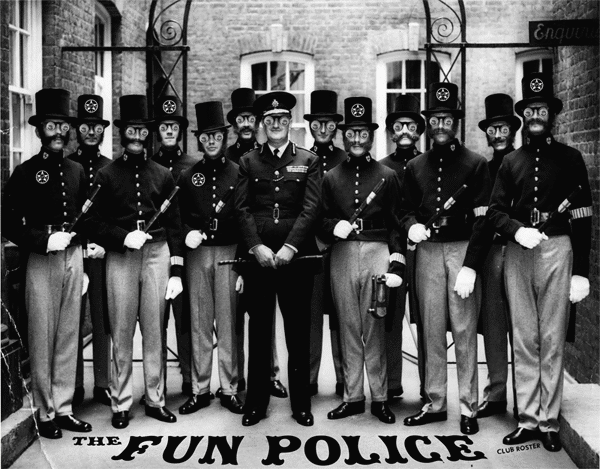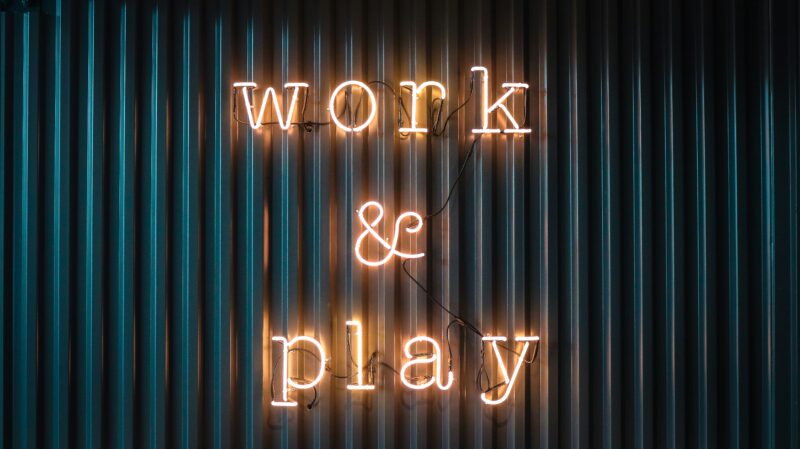Here come the fun police
We are living in likely the most amazing time in history. Medical science has progressed so far, and we are seemingly heading towards being able to almost deduce life expectancy down to a quadratic equation. Do more of these good things, and less of these bad things and you will live a long and healthy life. We are so lucky, in our increasingly bubble wrapped world. More regulations and safeguards to warn and protect us from harm.
Yet, life is clearly a bit more complex than this, and often the things that give us the biggest comfort and joy are things that are bad.
“Well, to be honest, after years of smoking and drinking, you do sometimes look at yourself and think. You know, just sometimes in between the first cigarette with coffee in the morning to that 400th glass of cornershop piss at 3am, you do sometimes look at yourself and think: ‘This is fantastic! I’m in heaven!'”
Bernard Black
Over the past couple decades there is a lengthening list of things on the naughty list – drinking, salt, smoking, fat, drugs, gluten, dairy, protein, air, sun, sugar, coffee, meat, any animal products and much much more. Warning signs seemingly everywhere to make sure we do not miss a danger that may slip our minds.
It reminds me of the 1982 pop hit …
“Goody two, goody two, goody goody two shoes. Goody two, goody two, goody goody two shoes. Don’t drink, don’t smoke, what do you do? Don’t drink, don’t smoke, what do you do?”
Adam Ant, Goody Two Shoes
In a research study I was involved in recently, a smoker made a comment that stuck with me …
“I think there are two different kinds of smokers – reluctant smokers and a happy smokers.”
(Male, smoker)
While many wish to break that destructive negative behaviour, to others it is a risk they are willing to wear. They have balanced the risk-reward, and are happy to indulge, even when they really know they shouldn’t.
They likely live an otherwise virtuous life, but have a vice that is a pleasurable indulgence in that fills them with comfort and joy. A risk they are willing to take. Health message advertising serves as important reminders, but for some they are just the nudge they need to take a break and indulge in another. They are a willing non-conformist.
According to World Health Organisation statistics, smoking kills half of its users, equating to around 7 million people a year, just shy of 1 million of these are non-smokers being exposed to second hand smoke. (More >)
Smoking prevalence is in decline – now around 10-12% of Australians smoke daily, compared with around 20% in 2001 (More >). Similarly alcohol consumption is also declining – abstainers have grown from around 18% of Australians aged 14+ in 2001 to 23% in 2016, and those at lifetime risk (drink 2+ standard drinks a day) has declined from 21% in 2001 to 17% in 2016 (More >). Illict drug use is slowly increasing 38% of 14+ Australians had used in their lifetime in 2001, increasing to 43% in 2016 (More >).
Smoking, drinking and drugs are unquestionably bad, yet for some risk takers seeing and hearing authorities waving the naughty finger is likely to do limited to discourage. They prefer to opt for social non-conformist behaviour and thinking and to not comply with society’s norms and expectations. In this world of conformity, they actively rebel. In a world of pressure to comply, they seek non-compliance. To overtly disobey the rules when all the signs clearly say ‘STOP!’
There is something refreshingly nice about non-conformist and non-compliant rebellion. My fear is that in our rising trend to force doing more good, less bad and following the rules to keep us safe from harm, this is somewhat symbolic of a society losing its ability to take risks.
If as a society we see a meal of carbohydrates or getting a latte with cows milk high risk, how can we be expected to take game changing risk that really is beyond our comfort zones?
Likely many of our game changers throughout time, from music to science, entrepreneurs to politicians, had non-comformist and non-compliant bahaviour synonymous with having a risk taking personality. With an appetite for physical, social, legal and financial risks, and likely also prone to other less socially acceptable risky behaviours from drugs to more.
“Taking LSD was a profound experience, one of the most important things in my life. LSD shows you that there’s another side to the coin, and you can’t remember it when it wears off, but you know it. It reinforced my sense of what was important—creating great things instead of making money, putting things back into the stream of history and of human consciousness as much as I could.”
Steve Jobs, the guy who founded Apple
Many of our world’s more notable successes took part in seemingly risky behaviours, Often it is viewed as a risk taking right of passage and learning.
“When I was a teenager I used drugs, I drank, I pretty much tried whatever was out there. But I was in Hawaii and it was a pretty relaxed place. I was lucky that I did not get addicted except to cigarettes which took me a long time to kick. But it does seem as if the speed in which you can get hooked on opiate-based medicines is fierce.”
President Obama (More >)
While President Clinton has been quoted as saying “I did not inhale,” President Obama has noted “when I was a kid, I inhaled, that was the point.”
More recently Elon Musk got in trouble smoking marijuana on a live streamed podcast with Joe Rogan (Episode #1169 from 2:16:17 More >).
EM: Is that a joint!? Or is it a cigar? JR: No. EM: OK. JR: It’s marijuana inside of tobacco. EM: OK. JR: You ever tried that? EM: Yeah, I think I tried that once. Ha, ha, ha … JR: You probably can’t because of stockholders right? EM: It’s legal right? JR: Totally legal! EM: OK. JR: How does that work? Do people get upset with you if you do certain things?
Elon Musk and Joe Rogan
The decision gained significant negative media attention and wiped 6% of Tesla’s share price (More >). It is public knowledge Elon Musk takes drugs such as Ambien and it is quite likely he does get involved in other risk taking behavour in his private life. As Rogan noted, California legalised recreational marijuana in 2018. Yet, there are very different attitudes and legalities associated with the likes of marijuana world-wide.

Legal status of recreational cannabis across the worldhttps://en.wikipedia.org/wiki/Legality_of_cannabis
(Blue Legal, Orange Decriminalised, Pink Illegal / not Enforced, Red Illegal)
We are increasingly being told what to do and not to do, and taking out even simple pleasures out of lives to reduce any level of unnecessary personal and health risk. To set default safe paths and legal and social rules. Digital is largely about compliance, and optimising the default process. Cars beep when you veer into a new lane, and increasingly cars will disallow non-compliance. Even the likes of marketing science are setting very serious rules. There are rules for everything to keep us safe from harm and to maximise our perceived joy and prosperity. But joy does not come from a world covered in non-literal bubble wrap.
My fear is for the young people. Research is illustrating that younger people are becoming more conservative. From a seemingly more complex world, yet more so from overly protective parents and community. Further there can be a sense of self-preservation more so than rebellion against society that arguably was more prevalent in previous generations. Many educators and parents are attempting to pipe children in a direction most likely to optimise the vocational pathway and improving the chance of security.
Generally the world is better than it was in the past. (More >) In many ways protecting young people is quite logical. The concern to me is that people tend to become more conservative over time, as reality and financial and other obligations increase.
So, if young people are starting off more protected and conservative, what does it mean for the future? Hopefully it means that they may rebel against an over protective society, yet likely it will go the opposite way, and we will become even more conformist and robotic.
Many of my most memorable moments over life have been those of non-conformity and non-compliance. Falling off a roof, or two or three. Broken bones and smashed cars from misadventure. Or, waking up in the morning thinking ‘never again,’ more than once or twice. But I am sure most will agree that that a fulfilled life comes from going against the rules, as rules are made to be broken. That’s where innovation comes from, and if a few broken bones and other sorriness are the consequence, so be it!
Rather than waving the finger and ‘no smoking, no skating, no drinking, no drugs etc’ signs that often just encourage rule breakers to give back dissonance. Encourage non-conformity and harmony. Put in a level of protection where possible. Such as recognising that end of year ‘Schoolie’ events will involve some risk taking, so allow for alternative activities, sufficient police and medical support, drug testing et cetera.

As a society saying ‘innovate or die,’ is this totally counter to our increasing focus on conformity and compliance? It is a hard dilemma, as a society of total anarchy is also pretty scary. There are more questions than answers. Understanding the comfort and joy people get from their bad behaviours is likely to be quite fascinating and provide insight to guide a level of protection without removing freedom of non-conformity.
It comes back to accepting that non-conformity and non-compliance is a critical part of the risk taking that comes with a worthwhile life. It brings comfort and joy, even when we know it is bad. Risk-takers drive change.
I will leave you with the quote apparently tattooed on Adam Ant …
“Experience is the name everyone gives to their mistakes.”
Oscar Wilde




